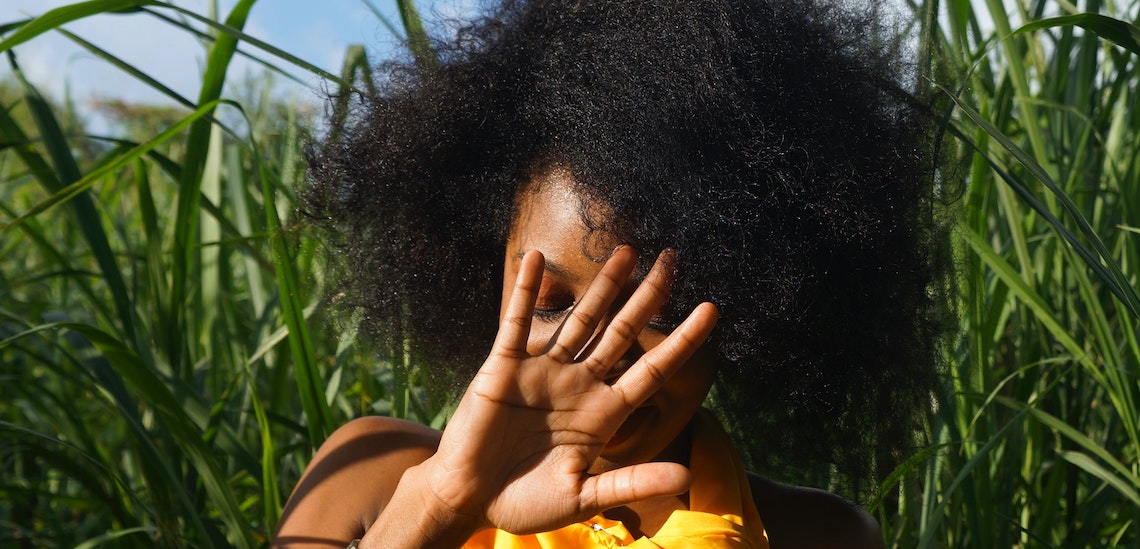Founding and operating a beauty brand is never easy. But it’s especially difficult when a founder focused on education sees other brands cutting corners and making marketing claims that obfuscate the truth. This is very apparent in the hair-care space, which is a booming category ripe with new brands and more innovative ingredients and formulas than in years past.
According to one founder of a natural-style hair-care brand, customers reach out daily with questions based on misinformation, such as what defines a clean beauty brand. And, they said, they see retailers perpetuating similar problems based on their own objectives and interests. In this latest edition of Confessions, Glossy spoke with an indie brand founder to hear their perspective and response to the murky world of hair care. This story has been lightly edited and condensed for clarity.
How do you respond to industry misinformation, especially around undefined and unregulated terms like “clean beauty”?
“[When I’m asked] whether my brand is clean, my approach is to call out the cognitive dissonance in a way that’s not offensive to my consumer but does expose the lack of thought behind the questions. [I respond by saying] ‘Let’s define clean.’ And then [I ask] why that’s important to them. Because if what they’re asking me is whether there are chemicals in my products, well, everything is made from chemicals. When other brands say ‘chemical free,’ it’s intentionally misleading. It weakens the [knowledge] of the consumer because they’re falling into this trap of not wanting anything [unnatural] in their products, [most of which] create [ingredient] stability in a formula. My strategy has always been to answer the question with a greater question. … I don’t want to lead with a marketing strategy that lacks integrity.”
What brands or companies are complicit in spreading this type of misinformation?
“Probably about 95% of the natural hair-care industry, in some way, is using or stating a claim that is either unregulated or legally shouldn’t be said. When [the industry] uses terms like ‘all natural’ or ‘environmentally friendly,’ we have to have a conversation about what that means. Not backing that up and not explaining to the consumer exactly how we’re able to prove something instantly makes it untrue. There are a lot of terms and claims around hair growth, like, ‘X ingredient promotes hair growth.’ … Well, known by who? Proven by who?”
How does this impact your brand, since you don’t want to play dirty?
“It can be extremely frustrating because that [time on education] has to be built into the marketing strategy, when I’d rather share how amazing the products are and how they’re going to help you solve your day-to-day hair-care woes. I spend most of my time dispelling myths instead of talking about what we should be talking about, which is hair care. We spend a lot of time talking about ingredients and [beauty] methods that people learn on YouTube that have nothing to do with hair. Natural hair-care brands [often] aren’t founded by people in the industry. When people can’t talk about hair-care because they lack experience, then, by default, they talk about ingredients.
But, the truth always wins. Integrity always wins. And I think that opens up a unique opportunity for my brand and for brands like mine that are based on science and have experience in cosmetology. It gives us an opportunity to broaden the conversation and have real conversations with our followers. It also gives us a unique advantage when it comes to positioning ourselves as thought leaders. But transparency should be about [servicing customers] and less about showing how great a brand is.”
What’s your experience with retailers?
“I thought that it was just the consumer that was on this clean beauty train. That’s not to say that clean beauty isn’t important; it’s something that we do care about it. But the way it’s being presented is incomplete. I’ve sat in rooms with retailers who have adopted [clean misinformation] because there’s consumer demand for clean beauty. A lot of times, we’re asked to check boxes and make claims because it makes us more marketable. All your big box retailers want you to say [that stuff].
Retailers want to show their consumer that they’re concerned about the environment and that they care about what their consumer cares about. … I agree that if there is a more naturally-derived alternative or a safe synthetic that you can use instead of a harsh ingredient, you should do it. But what I’m seeing with retailers is that they’re none the wiser [about clean beauty]; they really don’t care. What they care about is how well brands are able to market the message that the consumer is buying into.”
Has that made it hard to secure retail partnerships?
“Yes and no. I have had meetings with some popular retailers that were completely uninterested in the efficacy of the brand, and completely uninterested in the experience and the actual science behind it. They were instead obsessed with what ingredient I could call out and what fantasy I could put behind the ingredient. But I know from my experience and [scientific knowledge] that a lot of these ingredients don’t add to the value and performance of the product. I’ve had those tough moments where I had to break it down to retailers saying, ‘I’m not going to say that.’ I’m not going to add an ingredient from some tree in the Amazon rainforest when we all know it doesn’t add any value.”
Editor’s Note: For our Confessions series, we provide anonymity to fashion and beauty industry insiders to allow them to openly share their perspectives and give readers genuine insight. The author of a Confessions story is aware of the identity of the speaker and has validated their title and position.




